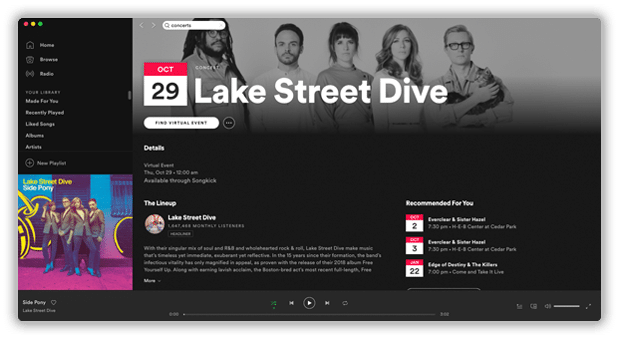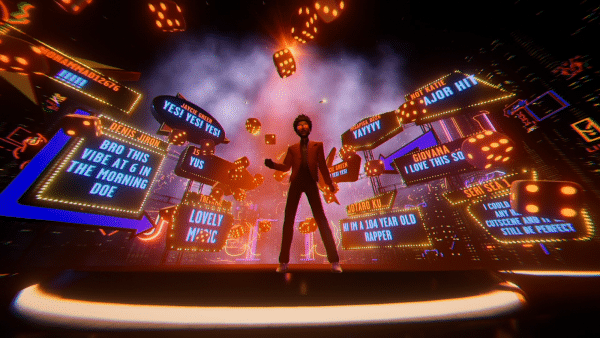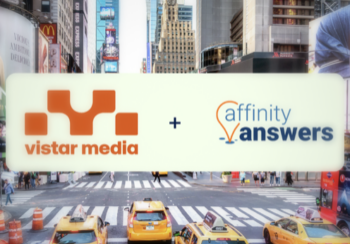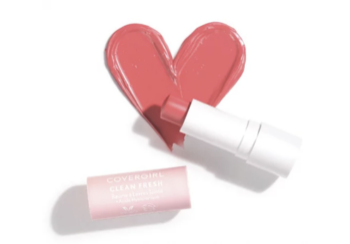Why The Future of the Music Industry Hinges on Data
There’s something psychologically satisfying about evaluating change and innovation through a 10-year lens. A decade allows us to look back with nostalgia and prognosticate imaginatively about what lies ahead. Decades allow us to create clear categories for music, movies, TV, fashion and pop culture in general.
The 1960s were defined by folk music and psychedelic rock. The 1970s were the disco era. The 1980s gave birth to hair metal bands. As the decades progressed, not only have music styles evolved but so too has the entire music industry — from how music is produced, packaged, promoted and consumed.
In March 2019, Vibe Magazine’s Adam Aziz pulled out the crystal ball and outlined 10 Ways the Music Industry Will Change in 10 Years. Soothsaying about change in a specific industry is one thing, but none of us could have predicted that a year later, a global pandemic would flip the entire world upside down, creating a “new normal” for everything, including music.
accelerated innovation & predictions
With COVID-19, ten year’s worth of incremental innovation was suddenly crammed into six months for so many industries. With social distancing in effect, live concerts and tours were canceled or postponed. Many artists and music companies have adapted. Warner Music Group has pivoted to live-streaming and virtual concerts. Kane Brown is doing his tour on drive-in movie screens across the country (drive-ins are back en vogue for the movie industry too due to COVID). Even Spotify is working on a virtual event feature.

Spotify’s Virtual Event Feature
At Affinity Answers, we’ve been watching the music and social spaces for a long time. The company’s roots in the music industry go back 10 years to the days of MySpace where we helped record labels better market their artists to fans. It was really the first time a platform gave direct 1:1 access between artists and fans. We’ve watched the evolution of the industry over a decade. Eighteen months into Vibe’s 10-year outlook for the music industry, I thought it would be a good time to pull out a few predictions from their list, see what’s accelerated since COVID, and look at how data and insights will underpin a continuous change and the near-term future of the music industry.
Vibe Magazine Prediction:
VR will be a viable tool in the music industry
Virtual reality and its cousin technologies, augmented and mixed realities, have become more mainstream across the entire media and entertainment industry as hardware/software improves and becomes more accessible. This has especially come to fruition in mobile games (who could forget the Pokemon Go craze?) and console games like PlayStation VR. For music, VR/AR are fast becoming extensions of live-streamed concerts, creating immersive and interactive experiences for fans well beyond a live broadcast on a movie screen.
There is a significant opportunity for virtual concerts to generate exponential revenues and fan engagement past what a live in-person event ever could. The model of augmented virtual concerts will likely continue even after people are back to attending live concerts, where both happen in tandem. The potential for augmented virtual events was demonstrated in July when The Weekend held an augmented-reality live-streamed concert on TikTok that drew over 2 million total unique viewers and set a TikTok record with 275,000 concurrent viewers. The event also raised $350,000 for the Equal Justice Initiative.

The Weeknd Virtual Concert on TikTok
With this as a model for what other artists can do with interactive virtual events, social data will play a key role in promoting these concerts and reaching new fans. Social data and insights into the shared affinities of fans can uncover the preferred channels for streaming an event (are our fans on TikTok?) and will even predict the organizations that the artist’s most loyal fans will likely support in order to replicate The Weeknd’s successful fundraising initiative. FanFinder360, for example, uses social insights to provide the fan behaviors and interests for any particular band, artist, or musical entity, allowing music marketers to reach listeners relevantly, in the places they frequent most.
Vibe Magazine Prediction:
superstar artists will be gone
Aziz points to an overall increase in music being produced as the death knell of the superstar artist. This is all being fueled by an increase in streaming sites like Spotify, Soundcloud, as well as YouTube, which has made it easier for more artists to be discovered and make a name for themselves. Hip-hop artist Jaleel Koth, said in an interview, “Streaming has opened up a new door for undiscovered talent to build their legacy independently.”
COVID certainly accelerated music streaming consumption and service subscriptions — especially during the early months of lockdown. As streaming trends continue long term, even past the pandemic, Aziz contends that artists will have to diversify into clothing, film, and TV in order to reach superstar status. Music will increasingly become just a gateway for young artists into other areas of entertainment and business.
As this reality comes to pass, artists and music marketers/promoters will understand their fans and what other things those fans are interested in and passionate about. Understanding the TV shows their fans watch or the brands they prefer is invaluable to making the right decisions about where to make a guest appearance on TV or what to focus on when launching a branded shoe or cosmetic line.
Vibe Magazine Prediction:
don’t be surprised if your favorite artist signs to Coca-Cola
Big brands have always sponsored major artist tours and music festivals. The list of 2019 Coachella corporate sponsors is dizzying and included Absolut, Amazon, American Express, Bose, BMWi, Calvin Klein, Cupcake Vineyards, Google Pixel 3, GT’s Kombucha, Heineken, HP, Marriott’s new loyalty program Bonvoy, Method, NYX professional makeup, Pantent, Peet’s Cold Brew, Postdates Uber and YouTube Music.
The concept of taking things a step further where brands actually step in as the record label isn’t completely new. Toyota started one that had a 13 year run before shutting down in 2016. Starbucks’ label Hear Music gave rise to all-female rock band Antigone Rising.
The prediction that this will increase is tied to the prediction that traditional record labels will go extinct. It’s also tied to the continued rise of DIY and bedroom pop artists, which has seen an increase during COVID with a dip in Q2 but significant resurgence in Q3. With more up and coming artists with massive numbers of fans on social media, brands can create labels for these new genres and tap into that fan base. Bedroom pop artist Girl in Red has 6.5 million monthly listeners on Spotify.
Whether it’s Vans or Nike Skateboarding launching a record label for up and coming unsigned punk and alternative bands, or Supreme creating a label for new R&B and hip hop artists, data is a big driver for understanding what brands an artist’s fans gravitate towards (and therefore may appeal to fans of similar artists). This allows for much more detailed targeting than simply having the Pepsi logo plastered everywhere at Lollapalooza. Fan data platforms, like FanFinder360, allow advertisers to hone their targeting efficiency by focusing on the areas where the fans are, versus casting a wide net and hoping for the best.
the next nine years…
Granted, it’s easy to evaluate predictions once you’re into the timeline. COVID-19 definitely threw everything for a loop, yet has accelerated the evolution of the music industry in positive ways. It’s hard to say exactly what the industry will look like in another nine years and we’re reflecting on this Vibe list in 2029.
What’s certain is that for these predictions to continue playing out successfully (regardless of the timeline), data is a critical factor. More specifically, social data holds the key to fans and unlocks insights that artists and the industry at large can use to optimize their efforts and investments. At its core, music has, and always will be about the fan experience. The more you understand your fans, the better experience you can provide — no matter how that experience changes over time.
Want to talk music audiences? So do we — get in contact with us at audiences@affinityanswers.com to see how we can help put your artist in front of the right crowds, or feel free to set up a demo of our FanFinder360 platform.


